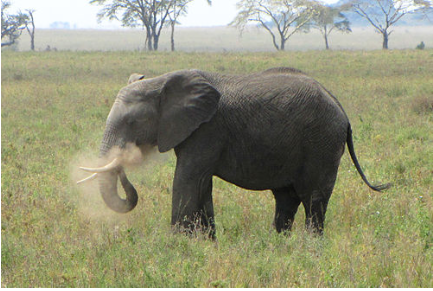Rise in Elephant Poaching: Blame Asian Demand or Complicity of Wildlife Officials?
Hardly a week goes by without another report of a major seizure of smuggled African elephant ivory. Just a week ago, on March 30, Thai customs officials seized two tons of elephant ivory (247 tusks) worth $3.3 million hidden in a ship’s hold that had traveled from Kenya.
The director of the Kenya Wildlife Service (KWS), Julius Kipng’etich, lays the blame on the Chinese. In an article in the Global Post, he’s quoted as saying, “Ninety percent of all the people who pass through our airports and are apprehended with illegal wildlife trophies are Chinese.” The article also quotes a cable written in February 2010 by the United States ambassador to Kenya, Michael Ranneberger, leaked to WikiLeaks which said “KWS noticed a marked increase in poaching wherever Chinese labor camps were located and in fact set up specific interdiction efforts aimed to reduce poaching.”
Others, however, point out that part of the problem may lie closer to home. Given the high value of elephant ivory, worth perhaps $100 per kilogram at its source in Africa and ten times that at its final destination, corruption is inevitable.
Renowned Kenyan conservationist and former KWS director, Richard Leakey, alleges in that same article, “I suspect that a lot of the killing that is being done in Kenya is either carried out by wildlife department personnel or with their full connivance.”
Kipng’etich denies the charge, noting that the seized ivory did not come from government stocks, which are marked with indelible ink. He also notes that KWS has its own “watchers” who keep track of its agents and that any agent caught would lose his/her job and possibly go to jail. Given the profits at hand, is that a real deterrent — or simply the cost of doing business?

